
Find Help
More Items From Ergsy search
-

What is meningitis?
Relevance: 100%
-
Is meningitis contagious?
Relevance: 100%
-

Are there vaccines for meningitis?
Relevance: 99%
-

What is non-infectious meningitis?
Relevance: 95%
-

Can meningitis be prevented?
Relevance: 95%
-

How is meningitis diagnosed?
Relevance: 94%
-

What are the main types of meningitis?
Relevance: 92%
-
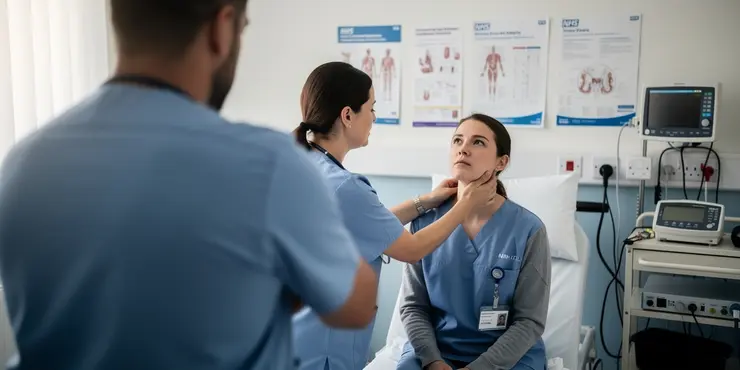
What are common symptoms of meningitis?
Relevance: 92%
-

Why is meningitis a medical emergency?
Relevance: 92%
-
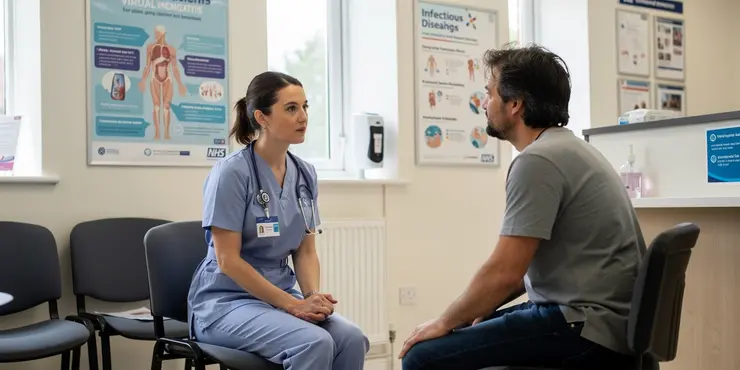
What causes viral meningitis?
Relevance: 92%
-
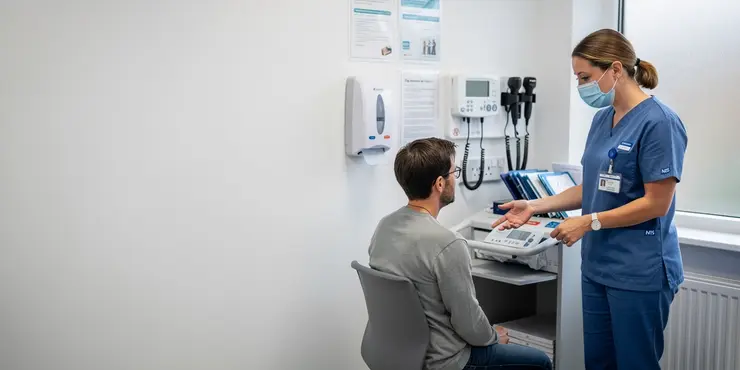
How is viral meningitis spread?
Relevance: 91%
-
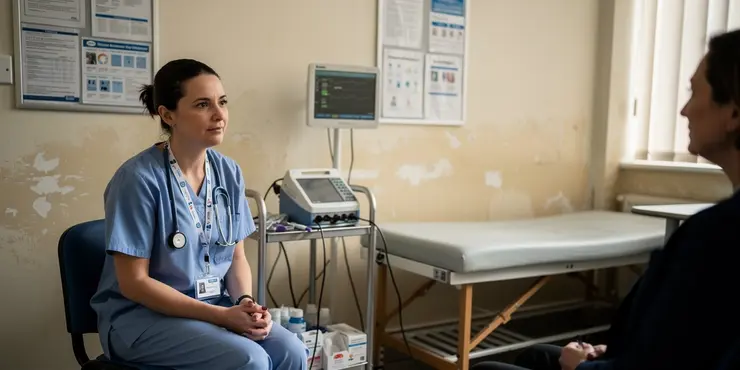
What is the prognosis for viral meningitis?
Relevance: 91%
-

What are the signs of meningitis in infants?
Relevance: 91%
-

What causes bacterial meningitis?
Relevance: 91%
-

What is the treatment for bacterial meningitis?
Relevance: 91%
-
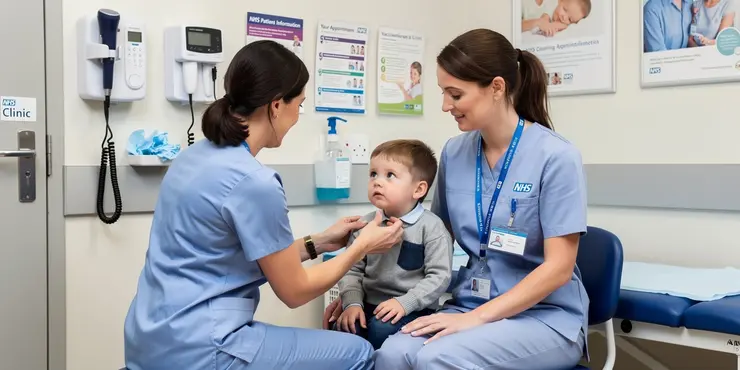
How serious is bacterial meningitis?
Relevance: 90%
-
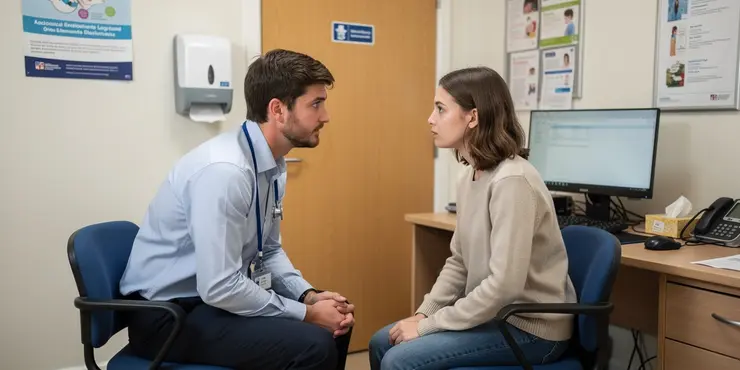
Can meningitis cause long-term complications?
Relevance: 88%
-
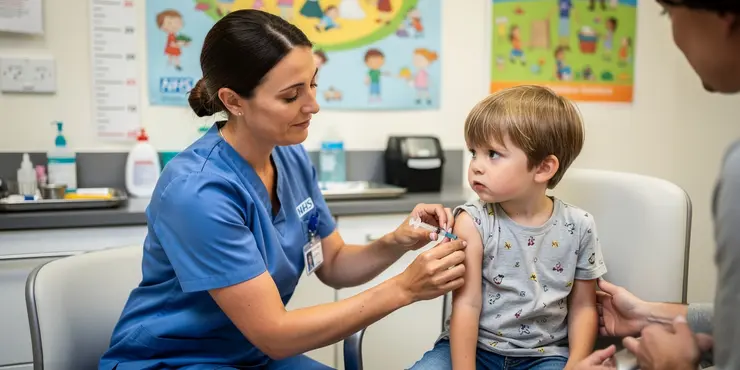
Who is at higher risk of contracting meningitis?
Relevance: 88%
-
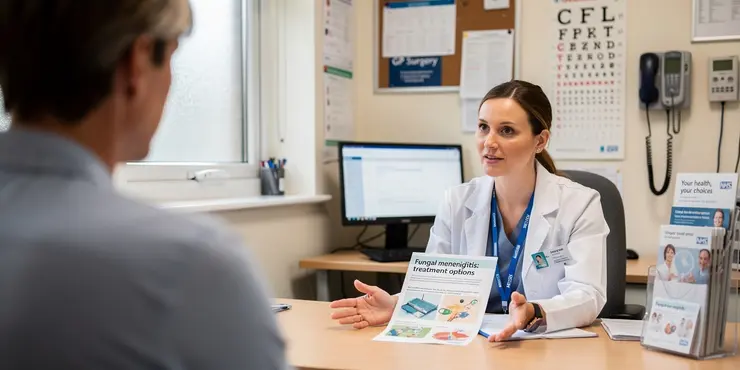
How is fungal meningitis treated?
Relevance: 87%
-

Is vaccination recommended for seniors against meningitis?
Relevance: 87%
-
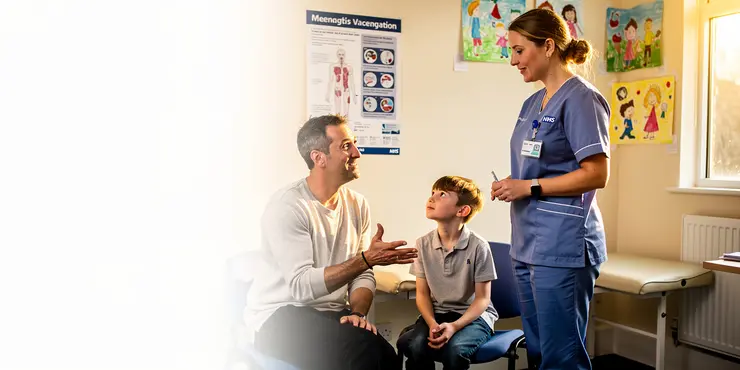
Who should get a meningitis vaccination?
Relevance: 86%
-

Is meningitis vaccination required for military recruits?
Relevance: 86%
-

Are adults over 25 recommended for meningitis vaccination?
Relevance: 85%
-

Does the CDC recommend meningitis vaccines for adolescents?
Relevance: 85%
-
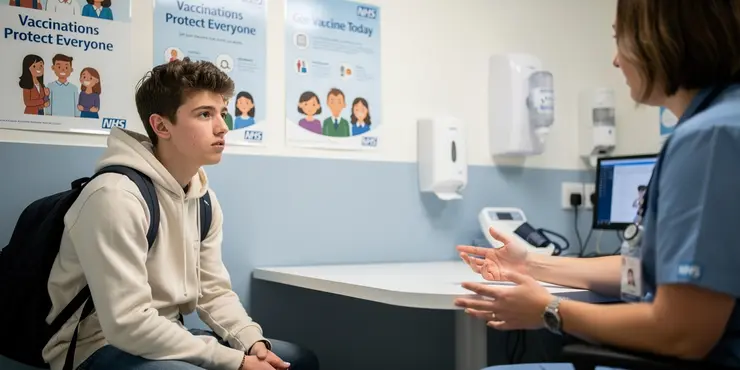
Should college students get the meningitis vaccine?
Relevance: 84%
-

Should health care workers get the meningitis vaccine?
Relevance: 83%
-

Do international students need the meningitis vaccine?
Relevance: 83%
-

Are there any specific groups that should prioritize meningitis vaccination?
Relevance: 83%
-
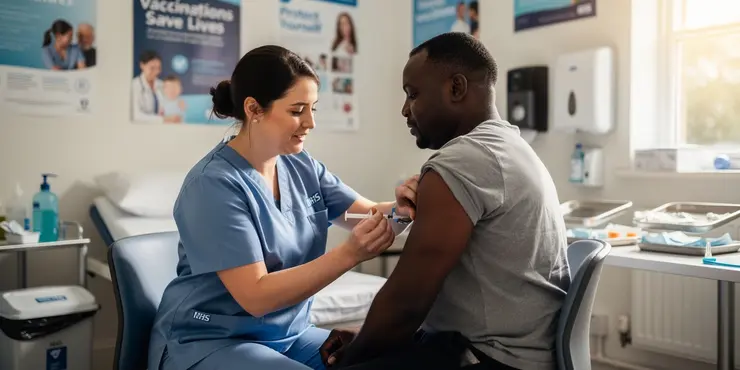
What are the guidelines for meningitis vaccination for HIV-infected individuals?
Relevance: 80%
-
What are the meningitis vaccination recommendations for travelers to Hajj or Umrah?
Relevance: 80%
-

Do people who have had meningitis in the past need to be vaccinated?
Relevance: 79%
-

Who is recommended to receive the meningitis vaccination?
Relevance: 38%
-
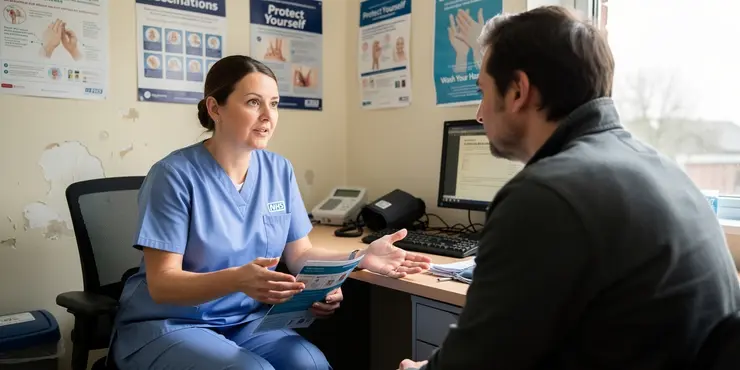
Should travelers consider getting a meningitis vaccine?
Relevance: 35%
-

At what age should children receive the meningococcal vaccine?
Relevance: 33%
-

Can pregnant individuals receive the meningococcal vaccine?
Relevance: 25%
-

Are infants recommended to receive the meningococcal vaccine?
Relevance: 25%
-

Why are teenagers and young adults recommended to get the MenB vaccine?
Relevance: 23%
-

What is a lumbar puncture?
Relevance: 21%
-

What are common symptoms of Lyme disease?
Relevance: 18%
-
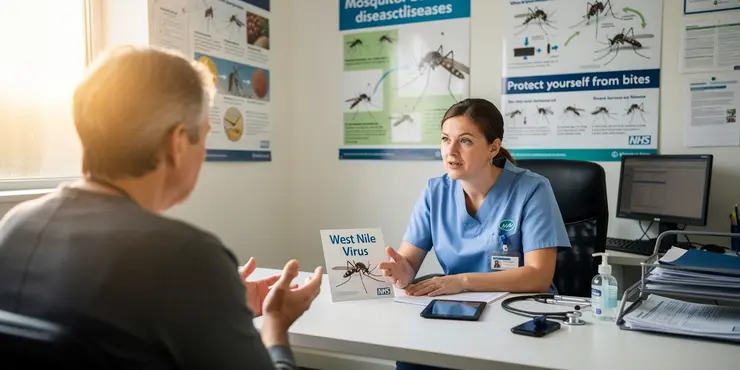
What is West Nile Virus?
Relevance: 18%
What is Meningitis?
Meningitis is an inflammation of the protective membranes, known as meninges, that cover the brain and spinal cord. This condition can be caused by various pathogens, including bacteria, viruses, and fungi. Understanding the different types and their respective causes is crucial for awareness and prevention.
Causes of Meningitis
There are several forms of meningitis, classified based on the causative agent. The most common types are viral and bacterial meningitis. Viral meningitis is usually less severe and often resolves without specific treatment. Bacterial meningitis, while less common, is more serious and requires immediate medical attention. Certain bacteria, such as Neisseria meningitidis and Streptococcus pneumoniae, are known to cause bacterial meningitis. Other, less common forms, like fungal meningitis, occur mainly in individuals with weakened immune systems.
Symptoms of Meningitis
Meningitis can manifest through a range of symptoms, which may vary depending on the type and severity of the infection. Common signs include sudden fever, severe headache, and a stiff neck. Other symptoms might involve nausea, vomiting, increased sensitivity to light, and altered consciousness. In infants, symptoms can be less specific and may involve irritability, poor feeding, and a bulging fontanel. It is essential to seek immediate medical attention if meningitis is suspected.
Diagnosis and Treatment
Diagnosing meningitis typically involves a thorough medical history, physical examination, and diagnostic tests. A lumbar puncture, or spinal tap, is often performed to analyse the cerebrospinal fluid and confirm the diagnosis. The treatment for meningitis depends on the cause. Bacterial meningitis requires prompt administration of intravenous antibiotics and sometimes corticosteroids to reduce inflammation. Viral meningitis typically requires supportive care, as antibiotics are ineffective against viruses. Vaccines are available for some types of bacterial meningitis and play a vital role in prevention.
Prevention of Meningitis
Preventative measures are crucial in reducing the risk of meningitis. Vaccines are the most effective way to prevent certain forms of bacterial meningitis. In the UK, vaccinations against meningococcal, pneumococcal, and Haemophilus influenzae type b are part of the routine immunisation schedule for children. Practicing good hygiene, such as regular hand washing and avoiding close contact with infected individuals, is important in preventing the spread of viral meningitis.
Meningitis in the UK
Meningitis remains a significant public health concern in the UK, with cases occurring sporadically throughout the year. While the introduction of vaccines has substantially reduced incidences, awareness and public education are critical in mitigating outbreaks. Understanding the symptoms, causes, and treatments of meningitis can help protect individuals and communities from this potentially life-threatening condition.
What is Meningitis?
Meningitis is a sickness where the coverings of the brain and spine get swollen. These coverings are called meninges. Meningitis can be caused by tiny germs like bacteria, viruses, and fungi. It is important to know about the different types so we can try to stop it from happening.
Causes of Meningitis
There are different types of meningitis based on what causes them. The most common types are viral and bacterial meningitis. Viral meningitis is not usually very serious and often gets better on its own. Bacterial meningitis is serious and needs a doctor right away. Some germs like Neisseria meningitidis and Streptococcus pneumoniae can cause bacterial meningitis. Fungal meningitis is rare and happens more often in people whose bodies can’t fight germs well.
Symptoms of Meningitis
Meningitis can cause a range of symptoms. Common signs include a sudden high fever, a bad headache, and a stiff neck. You might also feel sick to your stomach, vomit, dislike bright lights, or feel confused. Babies may not show clear signs but can be cranky, refuse to eat, and have a soft spot on their head that bulges. If you think someone has meningitis, it is important to see a doctor straight away.
Diagnosis and Treatment
Doctors find out if someone has meningitis by asking about their health, checking their body, and doing tests. One test called a lumbar puncture checks the fluid around the brain and spine. Bacterial meningitis is treated with medicine called antibiotics and sometimes steroids to reduce swelling. Viral meningitis usually means getting lots of rest and fluids because antibiotics don’t work on viruses. Vaccines can help prevent some types of bacterial meningitis.
Prevention of Meningitis
Stopping meningitis before it starts is very important. Vaccines are the best way to stop some types of bacterial meningitis. In the UK, children get vaccines for meningococcal, pneumococcal, and Haemophilus influenzae type b as part of regular health care. Washing your hands often and staying away from sick people can help stop the spread of viral meningitis.
Meningitis in the UK
Meningitis is still a big health concern in the UK, with cases happening at different times. Vaccines have helped reduce the number of cases, but it’s still important to know about it. Understanding the symptoms, causes, and how to treat meningitis can help keep people and communities safe from this dangerous illness.
Frequently Asked Questions
What is meningitis?
Meningitis is an inflammation of the protective membranes covering the brain and spinal cord, known as the meninges, often caused by an infection.
What are the main types of meningitis?
The main types of meningitis are bacterial, viral, fungal, and parasitic meningitis.
What causes bacterial meningitis?
Bacterial meningitis is caused by various types of bacteria, often Streptococcus pneumoniae, Neisseria meningitidis, or Haemophilus influenzae.
How is viral meningitis spread?
Viral meningitis can be spread through respiratory secretions, fecal contamination, and sometimes through insect bites, depending on the virus.
What are common symptoms of meningitis?
Symptoms often include headache, fever, neck stiffness, sensitivity to light, nausea, vomiting, and confusion.
How is meningitis diagnosed?
Meningitis is diagnosed through medical history, physical examination, and tests such as a lumbar puncture to analyze cerebrospinal fluid.
Is meningitis contagious?
Some forms of meningitis, particularly viral and bacterial, can be contagious and spread through close contact with an infected person's body fluids.
Can meningitis be prevented?
Vaccination can prevent some types of bacterial meningitis, and practicing good hygiene can reduce the risk of spreading viral meningitis.
Who is at higher risk of contracting meningitis?
Infants, young children, teenagers, and people with weakened immune systems are at higher risk of contracting meningitis.
What is the treatment for bacterial meningitis?
Bacterial meningitis requires prompt treatment with intravenous antibiotics and sometimes corticosteroids to reduce inflammation.
How serious is bacterial meningitis?
Bacterial meningitis can be life-threatening and requires immediate medical attention. Delayed treatment can lead to severe complications or death.
What causes viral meningitis?
Viral meningitis is often caused by enteroviruses, but can also result from infections with herpes virus, mumps, or others.
What is the prognosis for viral meningitis?
Viral meningitis is typically less severe than bacterial meningitis and usually resolves without specific treatment. Recovery is often complete.
How is fungal meningitis treated?
Fungal meningitis is treated with long courses of high-dose antifungal medications, often administered intravenously.
Can meningitis cause long-term complications?
Yes, particularly bacterial meningitis can cause long-term effects such as hearing loss, cognitive issues, or neurological damage.
What is a lumbar puncture?
A lumbar puncture is a medical procedure where a needle is inserted into the lower back to collect cerebrospinal fluid for testing.
Are there vaccines for meningitis?
Yes, vaccines are available for some causes of bacterial meningitis, including Haemophilus influenzae type b, pneumococcus, and meningococcus.
What are the signs of meningitis in infants?
In infants, signs may include fever, irritability, poor feeding, lethargy, and a bulging fontanelle (soft spot on the head).
What is non-infectious meningitis?
Non-infectious meningitis can be caused by conditions like cancer, a head injury, brain surgery, or certain drugs, rather than infections.
Why is meningitis a medical emergency?
Meningitis is a medical emergency because it can progress rapidly, leading to serious complications or death if not treated promptly.
What is meningitis?
Meningitis is when the covering of your brain and spine gets swollen. It can make you very sick.
If you think you or someone else has meningitis, tell an adult or a doctor right away.
Here are some things that can help:
- Look at pictures or watch videos to understand better.
- Ask someone to explain it to you if you don’t understand.
- Use an app or tool that helps with reading.
Meningitis makes the brain and spine coverings swell up. These coverings are called the meninges. It usually happens because of germs.
What are the main types of meningitis?
Meningitis means swelling in the brain. There are different types of meningitis:
- Bacterial Meningitis: Caused by germs. It can make you very sick.
- Viral Meningitis: Caused by viruses. It is less serious.
- Fungal Meningitis: Caused by fungus. It is not very common.
To learn more or get help, you can ask a doctor or use a picture book about health.
Meningitis can happen in different ways. There are four main types:
- Bacterial meningitis: This is caused by bacteria.
- Viral meningitis: This is caused by a virus.
- Fungal meningitis: This is caused by fungus.
- Parasitic meningitis: This is caused by parasites.
Using pictures or drawing can help understand these types better. You can also use apps that read text out loud.
What makes people get bacterial meningitis?
Bacterial meningitis is a sickness caused by tiny germs called bacteria. The most common ones are called Streptococcus pneumoniae, Neisseria meningitidis, and Haemophilus influenzae.
How does viral meningitis spread?
Viral meningitis can spread from one person to another. Here is how it can happen:
- Touch: If you touch things that have the virus, like toys or doorknobs, and then touch your face.
- Sneezes and Coughs: If someone with the virus sneezes or coughs near you.
- Shared Cups: If you share drinks or food with someone who has the virus.
To stay safe:
- Wash your hands often with soap and water.
- Use tissues when you sneeze or cough, then throw them away.
- Try not to share cups or food with other people.
If you want extra help, ask someone you trust to read this with you.
Viral meningitis can spread from person to person in different ways. It can spread through coughs or sneezes, through dirty hands, and sometimes through insect bites, like from mosquitoes.
What signs show someone might have meningitis?
When someone is sick, they might feel:
- Pain in their head
- Really hot (fever)
- A stiff neck
- Hurting eyes in bright light
- Feeling like they might throw up (nausea)
- Actually throwing up (vomiting)
- Being confused or not sure what's happening
Tools and techniques that might help:
- Use a soft eye mask to help with bright lights.
- Drink plenty of water to feel better.
- Ask an adult to help if you are confused or can't stop being sick.
How do doctors find out if someone has meningitis?
To find out if someone has meningitis, doctors will:
- Ask about the person's health in the past.
- Do a check-up on the person.
- Do a test called a lumbar puncture. This test looks at the fluid around the brain and spine.
Can you catch meningitis from someone?
Meningitis is an illness. Sometimes, you can catch it from others. It spreads through things like coughing, sneezing, or kissing. It is a good idea to wash your hands often and keep away from sick people.
If you need help reading, you can ask an adult. You can also listen to audiobooks or use apps that read text aloud.
Some types of meningitis can be caught from other people. This can happen when you get really close to someone who is sick and touch their spit or snot.
How can we stop meningitis?
Meningitis is a sickness that can make you very ill. But, there are ways to help stop it:
- Get vaccinated: There are shots that protect you from some types of meningitis. Ask your doctor about getting these shots.
- Wash hands often: Keep your hands clean to stop germs from spreading. Use soap and water.
- Cover your mouth: When you cough or sneeze, use a tissue or your elbow to cover your mouth. This helps stop germs from spreading.
- Stay healthy: Eat good food, get plenty of sleep, and exercise to keep your body strong.
If you need help reading, try using a tool like a reading pen or ask someone to read with you.
Getting a vaccine can help stop certain kinds of bacterial meningitis. Also, keeping clean can help stop the spread of viral meningitis.
Who can get meningitis more easily?
Babies, young children, teenagers, and people who are not very healthy can get meningitis more easily.
How do doctors help if you have bacterial meningitis?
Bacterial meningitis is a serious illness. It needs quick treatment with medicine given through a drip. This medicine helps fight the germs. Sometimes, other medicine is used to help with swelling in the body.
How bad is bacterial meningitis?
Bacterial meningitis is a serious illness. It can make you very sick. It is important to go to the doctor if you think you have it.
If you have a fever, headache, or stiff neck, tell an adult. They can help you see a doctor.
Use tools like picture books or videos to learn more. Ask an adult to explain things if you need help.
Bacterial meningitis is a serious illness. It can be very dangerous. You need to see a doctor right away. Waiting too long can make you very sick or even lead to death.
If you have trouble reading, you can use a ruler or your finger to help keep your place. Break the text into smaller parts and read them one at a time. It's okay to ask someone to help you understand.
What makes you get viral meningitis?
Viral meningitis is an illness. It is often caused by very tiny germs called enteroviruses. Other germs, like herpes virus or mumps, can also cause it.
What happens if you get viral meningitis?
Viral meningitis means a virus makes parts of your head and spine get swollen.
Most people get better after a few days to two weeks.
Resting and drinking lots of water helps.
If you feel very sick, talk to a doctor.
Ask a friend or family member to help you understand your doctor's advice.
Viral meningitis is not as serious as bacterial meningitis. It often gets better on its own. People usually get completely better after having it.
How do you treat fungal meningitis?
Fungal meningitis is a sickness in the brain. To get better, you need to see a doctor.
The doctor gives you special medicine to help fight the infection. This is called antifungal medicine. You might need to take these medicines for a long time.
Sometimes, the doctor will also give you medicines to help with pain or to lower a fever.
If you feel very sick, you might need to stay in the hospital for a while so that doctors and nurses can take care of you.
It’s important to follow the doctor’s plan to get better. If you don't understand something, ask an adult or someone you trust to help explain it to you.
Some ways to support your reading are using tools like audiobooks or asking someone to read it with you.
Doctors use special medicine to treat fungal meningitis. You need to take a lot of this medicine for a long time. Doctors usually give this medicine through a needle into your vein.
Can meningitis cause problems that last a long time?
Meningitis can sometimes cause problems that do not go away. These are serious and can affect the brain or other parts of the body.
Here are some things that might help:
- Pictures: Look at pictures about meningitis. They can help you understand more.
- Talk to Someone: Ask a doctor or nurse if you have questions. They can help explain.
- Simple Books: Read children’s books about the body and health.
- Use Apps: There are apps that can make learning easier and fun.
If you do not understand or feel worried, always ask for help.
Yes, some types of meningitis caused by bacteria can make people sick for a long time. It can make it hard to hear, think clearly, or hurt the brain.
What is a lumbar puncture?
A lumbar puncture is a medical test. It is also called a spinal tap. A doctor puts a thin needle in your lower back.
This test helps doctors check the fluid around your brain and spine. It can help find out if you are sick.
If you or someone you know needs a lumbar puncture, you can use pictures or videos to understand it better. You can also ask a doctor or nurse to explain it to you in simple words. A family member or friend can come with you to help you feel safe.
A lumbar puncture is a medical test. A doctor puts a small needle in your lower back to get fluid. This fluid is called cerebrospinal fluid. They test it to see if you are sick.
Is there a shot to stop meningitis?
Yes, there are shots (vaccines) that help stop meningitis. These shots keep you safe from getting sick. Doctors and nurses give these shots to protect you.
If you need help understanding, you can ask a parent, teacher, or friend. They can explain more about how shots work. You can also use pictures or videos to learn about the shots.
Yes, there are shots that can stop some germs that cause bacterial meningitis. These shots help protect against germs like Haemophilus influenzae type b, pneumococcus, and meningococcus.
What are the signs of meningitis in babies?
Meningitis is an illness. It can make babies very sick. Look for these signs:
- Your baby has a fever.
- Your baby cries a lot.
- Your baby seems very sleepy or doesn't wake up easily.
- Your baby has a stiff neck.
- Your baby doesn't want to eat.
- Your baby has a rash. It might look like small, red or purple spots.
If you see these signs, talk to a doctor or nurse right away.
It can help to have someone read with you. You can also use pictures to understand better.
When babies are sick, you might see these signs: a high temperature, being fussy, not eating well, very sleepy, and a soft spot on their head that looks like it's sticking out.
What is non-infectious meningitis?
Meningitis is when the brain and spine get swollen.
Non-infectious means it is not caused by germs or viruses.
It can happen because of things like injuries or certain medicines.
If you're not sure, ask a doctor or a trusted adult for help.
Using pictures or simple videos can make learning easier.
Meningitis is when the brain or spine gets swollen. Sometimes, it's not because of germs. This can happen if someone has cancer, hurt their head, had brain surgery, or took certain medicines.
Why is meningitis very serious?
Meningitis is a health problem. It means there is swelling in the brain and spine area.
It can make you very sick, very quickly. You need help from a doctor right away.
If you feel sick with a headache, fever, or stiff neck, tell an adult. They can take you to see a doctor.
To understand more, you can ask someone to read with you. Looking at pictures or videos can help too.
Meningitis is a very serious illness. It can make you very sick very fast. If you don't get help quickly, it can cause big problems or even be life-threatening.
Useful Links
This website offers general information and is not a substitute for professional advice.
Always seek guidance from qualified professionals.
If you have any medical concerns or need urgent help, contact a healthcare professional or emergency services immediately.
Some of this content was generated with AI assistance. We’ve done our best to keep it accurate, helpful, and human-friendly.
- Ergsy carfully checks the information in the videos we provide here.
- Videos shown by Youtube after a video has completed, have NOT been reviewed by ERGSY.
- To view, click the arrow in centre of video.
- Most of the videos you find here will have subtitles and/or closed captions available.
- You may need to turn these on, and choose your preferred language.
- Go to the video you'd like to watch.
- If closed captions (CC) are available, settings will be visible on the bottom right of the video player.
- To turn on Captions, click settings .
- To turn off Captions, click settings again.
More Items From Ergsy search
-

What is meningitis?
Relevance: 100%
-
Is meningitis contagious?
Relevance: 100%
-

Are there vaccines for meningitis?
Relevance: 99%
-

What is non-infectious meningitis?
Relevance: 95%
-

Can meningitis be prevented?
Relevance: 95%
-

How is meningitis diagnosed?
Relevance: 94%
-

What are the main types of meningitis?
Relevance: 92%
-

What are common symptoms of meningitis?
Relevance: 92%
-

Why is meningitis a medical emergency?
Relevance: 92%
-

What causes viral meningitis?
Relevance: 92%
-

How is viral meningitis spread?
Relevance: 91%
-

What is the prognosis for viral meningitis?
Relevance: 91%
-

What are the signs of meningitis in infants?
Relevance: 91%
-

What causes bacterial meningitis?
Relevance: 91%
-

What is the treatment for bacterial meningitis?
Relevance: 91%
-

How serious is bacterial meningitis?
Relevance: 90%
-

Can meningitis cause long-term complications?
Relevance: 88%
-

Who is at higher risk of contracting meningitis?
Relevance: 88%
-

How is fungal meningitis treated?
Relevance: 87%
-

Is vaccination recommended for seniors against meningitis?
Relevance: 87%
-

Who should get a meningitis vaccination?
Relevance: 86%
-

Is meningitis vaccination required for military recruits?
Relevance: 86%
-

Are adults over 25 recommended for meningitis vaccination?
Relevance: 85%
-

Does the CDC recommend meningitis vaccines for adolescents?
Relevance: 85%
-

Should college students get the meningitis vaccine?
Relevance: 84%
-

Should health care workers get the meningitis vaccine?
Relevance: 83%
-

Do international students need the meningitis vaccine?
Relevance: 83%
-

Are there any specific groups that should prioritize meningitis vaccination?
Relevance: 83%
-

What are the guidelines for meningitis vaccination for HIV-infected individuals?
Relevance: 80%
-
What are the meningitis vaccination recommendations for travelers to Hajj or Umrah?
Relevance: 80%
-

Do people who have had meningitis in the past need to be vaccinated?
Relevance: 79%
-

Who is recommended to receive the meningitis vaccination?
Relevance: 38%
-

Should travelers consider getting a meningitis vaccine?
Relevance: 35%
-

At what age should children receive the meningococcal vaccine?
Relevance: 33%
-

Can pregnant individuals receive the meningococcal vaccine?
Relevance: 25%
-

Are infants recommended to receive the meningococcal vaccine?
Relevance: 25%
-

Why are teenagers and young adults recommended to get the MenB vaccine?
Relevance: 23%
-

What is a lumbar puncture?
Relevance: 21%
-

What are common symptoms of Lyme disease?
Relevance: 18%
-

What is West Nile Virus?
Relevance: 18%


